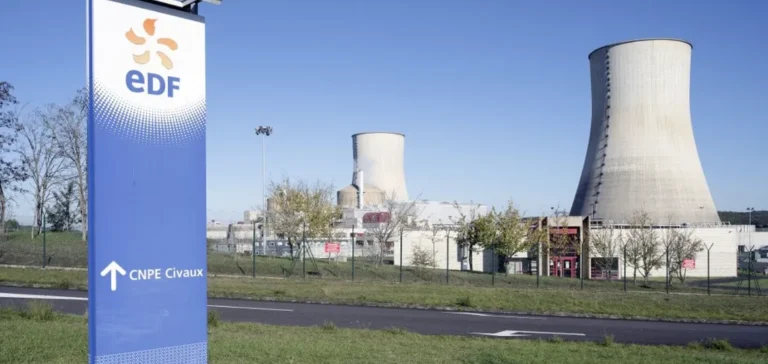EDF plans to deploy a sovereign and secure digital space to centralise information exchanges within the French nuclear industry, as part of the large-scale nuclear revival programme initiated by the state. The announcement was made during the civil nuclear exhibition held near Paris.
A platform to structure information flows
Named Data4NuclearX, the digital platform is led by a consortium of six entities including EDF, the French Alternative Energies and Atomic Energy Commission (Commissariat à l’énergie atomique et aux énergies alternatives, CEA), the French Nuclear Industry Group (Groupement des industriels français de l’énergie nucléaire, Gifen), and digital firms Dawex, Sopra Steria and Institut Mines-Télécom. It aims to improve cooperation among the 2,000 companies operating in the sector in France, 80% of which are small and medium-sized enterprises.
Through this system, each supplier or partner will have access to reliable technical and operational data while retaining full control of their own information. According to EDF, this will reduce delays, enhance quality and optimise processes, particularly in the manufacturing monitoring of key components.
Rapid growth in data volumes
EDF anticipates a tenfold increase in the volume of digital exchanges, reaching 25 million data transfers annually within five years. This surge is driven by the complexity of upcoming projects, notably the planned construction of at least six EPR2 nuclear reactors.
The platform’s operational deployment is scheduled for 2028. In the meantime, the consortium must select a hosting infrastructure that meets France’s cybersecurity and data sovereignty standards.
Towards strengthened digital sovereignty
EDF has announced the selection of two French providers to host its most sensitive data: BLEU, a joint venture between Capgemini and Orange, and S3NS, developed by Thales. Although these solutions are based on software from Microsoft and Google, they are currently undergoing certification by the French National Cybersecurity Agency (Agence nationale de la sécurité des systèmes d’information, Anssi) under the SecNumCloud 3.2 framework.
This certification ensures that data stored on these platforms will not be subject to non-European legislation. It represents the highest level of security recognised by the French state for sovereign cloud infrastructure.






















